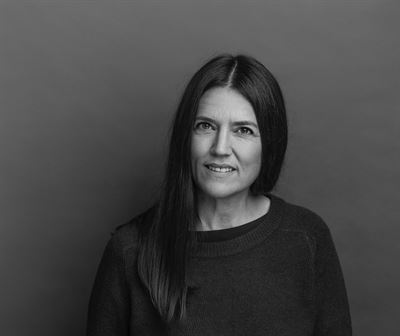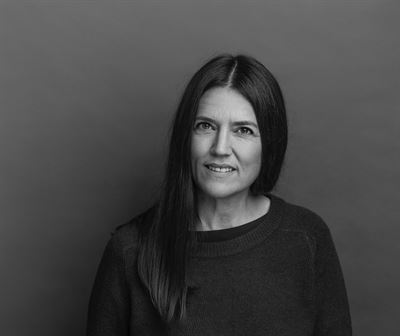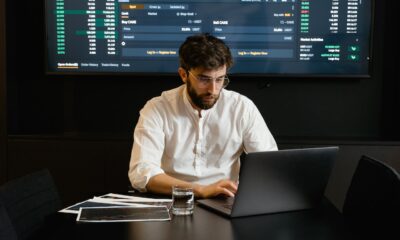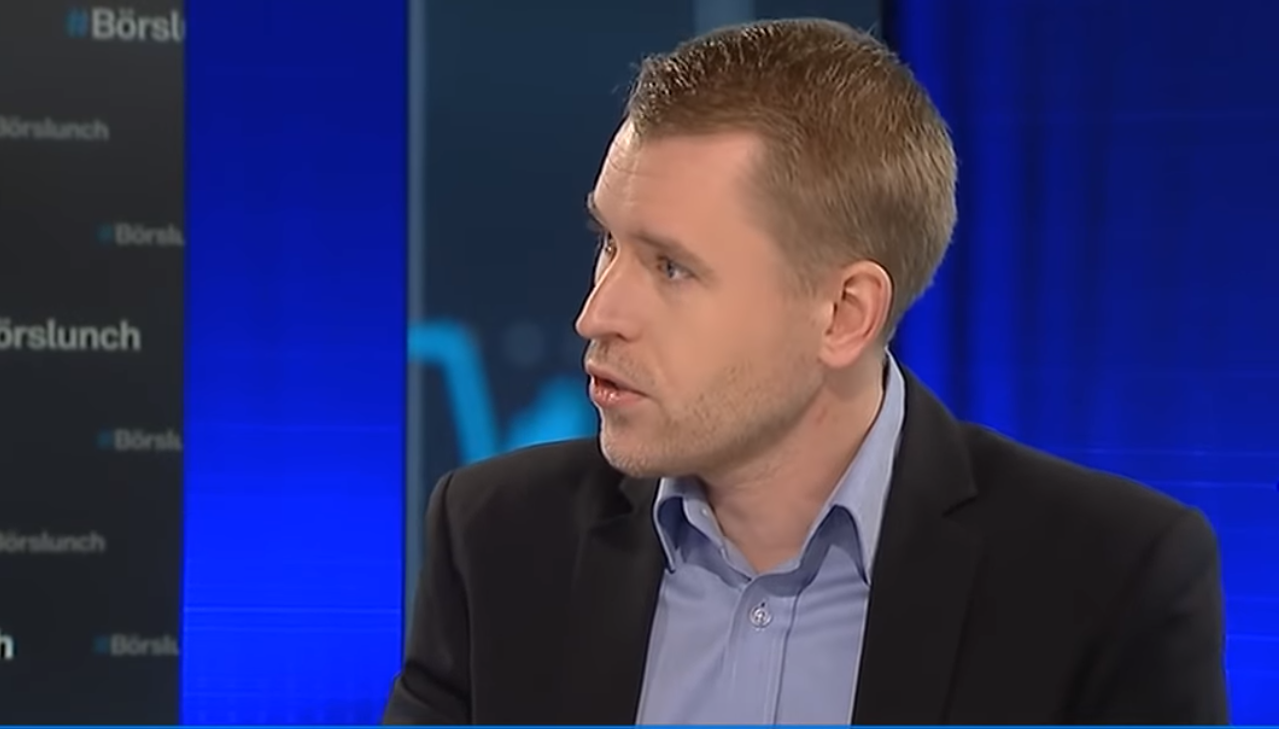Marknadsnyheter
Beyfortus approved in Japan for the prevention of RSV disease in infants
First and only RSV preventive option for broad infant population authorised for use in Japan.
AstraZeneca and Sanofi’s Beyfortus (nirsevimab), a long-acting monoclonal antibody, has been approved in Japan for the prophylaxis of lower respiratory tract disease (LRTD) caused by respiratory syncytial virus (RSV) in all neonates, infants and children entering their first RSV season, and the prevention of RSV LRTD in neonates, infants and children at risk of serious RSV infection entering their first or second RSV season.1 Beyfortus is anticipated to be available for the upcoming 2024/25 RSV season, in line with existing Japanese guidelines.
Beyfortus is the first preventive option developed to protect a broad infant population against RSV LRTD, including protecting those infants born healthy at term, or preterm, or with specific health conditions that make them vulnerable to severe disease. The approval by the Japanese Ministry of Health, Labour and Welfare is based on three Beyfortus pivotal late-stage clinical trials. Across all clinical endpoints, a single dose of Beyfortus demonstrated consistent efficacy against RSV LRTD extending through five months, the duration of a typical RSV season.2-5
More than 100,000 cases of RSV LRTD in infants are reported every year in Japan including healthy infants born at term.6
Dr. Hiroyuki Moriuchi, Professor and Head of Department of Pediatrics, Nagasaki University Graduate School of Biomedical Sciences, said: “This is an important milestone in the fight against RSV in infants. Almost all children are affected by RSV by the age of two and all infants, including those born healthy and at term, can be at risk. RSV causes a significant burden for children, their families and to the medical system potentially leading to long-term consequences of severe infection in infancy. Beyfortus can protect infants across the RSV season and its approval represents a crucial contribution to the prevention and control of RSV disease in Japan.”
Iskra Reic, Executive Vice President, Vaccines and Immune Therapies, AstraZeneca, said: “The approval of Beyfortus means it is possible for the first time to prevent serious respiratory disease due to RSV for all infants in Japan and reduce the infectious disease burden on healthcare systems. Beyfortus reflects AstraZeneca’s commitment to the scientific development of preventive options to support the most vulnerable patient populations and we look forward to making Beyfortus available in Japan for the 2024/25 season.”
Beyfortus has received approval in the European Union, US and China.
Notes
Japan Beyfortus indication1
The following groups of neonates, infants or children at risk of serious RSV infection entering their first or second RSV season, should meet at least one of the following criteria:
- In the early stage of first RSV season
- Infants born at 28 weeks’ gestation or earlier and less than 12 months of age
- Infants born at 29 to 35 weeks’ gestation and less than 6 months of age
- In the early stage of first and second RSV season
- Neonates, infants or children less than 24 months of age who have received one treatment against chronic lung disease within the past 6 months
- Neonates, infants or children less than 24 months of age with hemodynamically significant congenital heart disease
- Neonates, infants or children less than 24 months of age with immunocompromised conditions
- Neonates, infants or children less than 24 months of age with Down syndrome
Global pivotal clinical trials
The Phase IIb (Trial 03) study was a randomised, placebo-controlled trial designed to measure the efficacy of Beyfortus against medically attended (MA) Lower Respiratory Tract Infection (LRTI) through 150 days post-dose. Healthy preterm infants of 29 to less than 35 weeks’ gestational age were randomised (2:1) to receive a single 50mg intramuscular injection of Beyfortus or placebo regardless of weight.1,4
The Beyfortus dosing regimen was determined based on further exploration of the Phase IIb data and was used in subsequent trials as a single 50mg dose for those who weigh less than 5kg, or a single 100mg dose for those who weigh 5kg or greater.1,4
The MELODY Phase III study (Trial 04) was a randomised, double-blind, placebo-controlled trial conducted across 21 countries designed to determine efficacy of Beyfortus against medically attended LRTI through 150 days after dosing, versus placebo, in healthy term and late preterm infants (35 weeks gestational age or greater) entering their first RSV season.1-3
The MEDLEY (Trial 05) was a Phase II/III, randomised, double-blind, Synagis (palivizumab)-controlled trial with the primary objective of assessing safety and tolerability for Beyfortus in preterm infants of less than 35 weeks gestational age and infants with congenital heart disease (CHD) and/or chronic lung disease of prematurity (CLD) eligible to receive Synagis. Between July 2019 and May 2021, a total of 925 infants entering their first RSV season were randomised (2:1) in each of the preterm and CLD/CHD cohorts to receive Beyfortus or Synagis. A total of 262 children up to 24 months of age from the CLD/CHD cohort continued in the trial for a second RSV season. Safety was assessed by monitoring the occurrence of adverse events through 360 days post-dose.
The results of MELODY, MEDLEY Phase II/III and the Phase IIb trials demonstrate that a single dose of Beyfortus helps protect infants during their first RSV season against RSV disease. This broad infant population includes healthy term, late preterm and preterm infants, as well as infants with specific health conditions that make them vulnerable to severe RSV disease.1,5
These trials formed the basis of regulatory submissions which began in 2022.
Results
Phase IIb trial (Trial 03)
The primary endpoint of the Phase IIb study was met, reducing the incidence of medically attended LRTI caused by RSV by 70.1% (95% CI: 52.3, 81.2) compared to placebo. The event rates were 2.6% in treatment arm vs 9.5% in placebo arm. Between November 2016 and December 2017, 1,453 infants were randomised (Beyfortus, n=969; placebo, n=484) at the RSV season start. Research was conducted by AstraZeneca in both hemispheres, at 164 sites in 23 countries. Data were published in NEJM in July 2020.1,4
In a prespecified secondary endpoint, Beyfortus reduced medically attended RSV LRTI with hospitalisation by 78.4% (95% CI 51.9, 90.3) versus placebo. Observed events were 0.8% in treatment arm vs 4.1% in placebo arm.1 A subgroup analysis by body weight indicated a lower efficacy in infants >5 kg vs <5kg. The resulting post-hoc analysis of the Phase IIb study that applied the recommended 50mg dose in a subgroup of infants weighing less than 5kg showed the efficacy of Beyfortus against medically attended RSV LRTI and medically attended RSV LRTI with hospitalisation was 86.2% (95% CI 68.0, 94.0) and 86.5% (95% CI 53.5, 96.1) respectively.1,7
MELODY Phase III trial (Trial 04)
The primary endpoint of the MELODY Phase III trial was met, reducing the incidence of medically attended LRTI, such as bronchiolitis or pneumonia, caused by RSV by 74.5% (95% confidence interval (CI) 49.6, 87.1; P<0.001) compared to placebo.3 The event rates were 1.2% in treatment arm vs 5% in placebo arm. The Beyfortus dosing regimen was determined based on further exploration of the Phase IIb data and was 50mg<5kg and 100 mg >=5kg. The efficacy of Beyfortus against the secondary endpoint of hospitalisation was 62.1% (95% CI: -8.6, 86.8). Observed events were 0.6% in treatment arm vs 1.6% in placebo arm. Between July 2019 and March 2020, 1,490 infants were randomised to receive either Beyfortus or placebo at the RSV season start. Initial data from the MELODY Primary Cohort were published in NEJM in March 2022.1,5
MEDLEY Phase II/III trial (Trial 05)
Serum levels of Beyfortus following dosing (on day 151) in this trial were comparable with those observed in the MELODY Phase III trial, indicating similar protection in this population to that in the healthy term and late preterm infants is likely. In the first RSV season, the incidence of medically attended RSV LRTI through 150 days post dose was 0.6% (4/616) in the Beyfortus group and 1.0% (3/309) in the Synagis group. In the second RSV season, there were no cases of medically attended RSV LRTI through Day 150 in children who received either Beyfortus or Synagis. Data were published in the New England Journal of Medicine (NEJM) in March 2022.1,5
The safety profile of Beyfortus was similar to Synagis in the MEDLEY Phase II/III trial and consistent with the safety profile in healthy term and preterm infants studied in the MELODY and Phase IIb trials. While uncommon, the most reported adverse reactions were: rash 14 days post-dose (the majority of which were mild to moderate); non-serious injection site reactions within 7 days post-dose.1,3,5
Beyfortus
Beyfortus (nirsevimab) is a single dose long-acting antibody, developed and commercialised in partnership by AstraZeneca and Sanofi using AstraZeneca’s YTE technology. It is designed to protect infants born during or entering their first RSV season and for children up to 24 months of age who remain vulnerable to severe RSV disease through their second RSV season. Beyfortus, provided directly to newborns and infants as a single dose, offers rapid protection via an antibody to help prevent LRTD caused by RSV, without requiring activation of the immune system.
Beyfortus administration can be timed to the start of the RSV season or during the season for those infants born in season.1
Beyfortus has been granted regulatory designations to facilitate expedited development by several major regulatory agencies around the world. These include Breakthrough Therapy Designation and Priority Review Designation by the China Center for Drug Evaluation under the National Medical Products Administration; Breakthrough Therapy Designation from the US Food and Drug Administration; access granted to the European Medicines Agency (EMA PRIority MEdicines (PRIME)) scheme; and named “a medicine for prioritized development” under the Project for Drug Selection to Promote New Drug Development in Pediatrics by the Japan Agency for Medical Research and Development (AMED).
Sanofi Alliance
In March 2017, AstraZeneca and Sanofi announced an agreement to develop and commercialise nirsevimab. Under the terms of the agreement, AstraZeneca leads development and manufacturing activities, and Sanofi leads commercialisation activities and records revenue. The two companies share costs and profits in all territories except the US. AstraZeneca’s revenue from the agreement is reported as Alliance Revenue and Collaboration Revenue in the Company’s financial statements.
Following a revision to the profit-sharing arrangement relating to the development and commercialisation of nirsevimab in the US between AstraZeneca, Sanofi and Sobi, Sobi has entered into a direct relationship with Sanofi, replacing the previous participation agreement with AstraZeneca entered into in November 2018.
Beyfortus will be co-promoted by AstraZeneca and Sanofi in Japan.
AstraZeneca
AstraZeneca (LSE/STO/Nasdaq: AZN) is a global, science-led biopharmaceutical company that focuses on the discovery, development, and commercialisation of prescription medicines in Oncology, Rare Diseases, and BioPharmaceuticals, including Cardiovascular, Renal & Metabolism, and Respiratory & Immunology. Based in Cambridge, UK, AstraZeneca operates in over 100 countries and its innovative medicines are used by millions of patients worldwide. Please visit astrazeneca.com and follow the Company on social media @AstraZeneca.
Contacts
For details on how to contact the Investor Relations Team, please click here. For Media contacts, click here.
References
- Japan Ministry of Health, Labour and Welfare indication
- Muller WJ, et al. Nirsevimab for Prevention of RSV in Term and Late-Preterm Infants. N Engl J Med. April 5, 2023. DOI: 10.1056/NEJMc2214773
- Hammitt LL, et al. Nirsevimab for Prevention of RSV in Healthy Late-Preterm and Term Infants. N Engl J Med. 2022;386 (9): 837-846. Doi: 10.1056/NEJMoa2110275
- Griffin P, MD et al. Single-Dose Nirsevimab for Prevention of RSV in Preterm Infants. N Engl J Med. 2020;383: 415-425. DOI: 10.1056/NEJMoa1913556
- Domachowske J, MD et al. Safety of Nirsevimab for RSV in Infants with Heart or Lung Disease or Prematurity. N Engl J Med. 2022; 386 (9)
- Ishiwada, N. et al. Guidelines for the Management of Respiratory Infectious Diseases in Children in Japan 2022. The Pediatric Infectious Disease Journal. Volume 42, Issue 10, October 2023. DOI: 10.1097/INF.0000000000004041
- Supplement to Simões EAF, et al. Efficacy of nirsevimab against respiratory syncytial virus lower respiratory tract infections in preterm and term infants, and pharmacokinetic extrapolation to infants with congenital heart disease and chronic lung disease: a pooled analysis of randomised controlled trials. Lancet Child Adolesc Health 2023; published online Jan 9. https://doi.org/10.1016/S2352-4642(22)00321-2.
Marknadsnyheter
Regeringen föreslår lättnader i byggkraven för studentbostäder
Regeringen har beslutat om en lagrådsremiss med förslag till lättnader i byggkraven för studentbostäder. Syftet är att öka möjligheterna till flexibilitet vid byggandet.
– På många studieorter är det svårt för studenter att hitta boende. Därför behöver byggregelverket förenklas. Syftet är att möjliggöra för fler studentbostäder genom sänkta byggkostnader och ökad flexibilitet, säger infrastruktur- och bostadsminister Andreas Carlson.
Förslaget innebär att det blir möjligt att göra undantag från kraven på tillgänglighet och användbarhet i en byggnad som innehåller studentbostäder. Undantagen ska kunna tillämpas vid både nyproduktion och vid ändring av en byggnad.
Det ska vara möjligt att göra undantag för högst 80 procent av studentbostäderna i ett byggprojekt. Minst 20 procent av studentbostäderna ska fortfarande uppfylla gällande krav på tillgänglighet och användbarhet för personer med nedsatt rörelse- eller orienteringsförmåga.
Lagändringen ger större flexibilitet vid byggande av studentbostäder och skapar fler tänkbara sätt att utforma planlösningar. Till exempel kan bostadsytan minskas och fler bostäder rymmas inom en given yta.
De föreslagna undantagen ska inte hindra personer med funktionsnedsättning att vara delaktiga i sociala sammanhang. En studentbostad som omfattas av undantagen ska kunna besökas av en person med nedsatt rörelse- eller orienteringsförmåga.
Regeringen breddar också definitionen av studentbostäder till att inkludera all vuxenutbildning för att göra det möjligt för fler kommuner att erbjuda studentbostäder.
Förslagen föreslås träda i kraft den 1 juli 2025.
Lagrådsremissen: Lättnader i byggkraven för studentbostäder – Regeringen.se
Presskontakt
Ebba Gustavsson
Pressekreterare hos infrastruktur- och bostadsminister Andreas Carlson
Telefon (växel) 08-405 10 00
Mobil 076-12 70 488
ebba.gustavsson@regeringskansliet.se
Marknadsnyheter
“Vi behöver tillsammans enas om vettiga avtal, som sätter standard för branschen”


Sveriges Radios Kulturnytt gör just nu en mycket välkommen granskning av villkoren i musikbranschen. Igår lyftes artisten Siw Malmkvists situation med ett avtal som inte förnyats på över 60 år. Hennes situation är tyvärr långt ifrån unik. Musikerförbundet har länge uppmärksammat att majorbolagen fortsätter att betala extremt låga royaltynivåer till artister vars kontrakt skrevs på 1960-talet – en tid då digital streaming inte existerade.
– Jag kan intyga att artisterna som talar ut i P1 är långt ifrån ensamma om sin situation och vi uppmanar deras artistkollegor att gå ut med sitt tydliga stöd till de som vågar bryta tystnaden om oskäliga ersättningar, säger Musikerförbundets ordförande Karin Inde.
Musiker och artister skapar det värde som skivbolagen tjänar pengar på, men ändå ser vi gång på gång hur bolagen behåller stora delar av intäkterna. Att en av Sveriges mest folkkära artister, med en karriär som sträcker sig över decennier, fortfarande har en oskälig royalty är ett tydligt bevis på branschens obalans.
– Tystnadskulturen kring prissättning är enbart bra för bolagen. Både artister och musiker skulle verkligen tjäna på att dela med sig till varandra om hur betalningar och dealar verkligen ser ut. Förstås i trygga, egna rum. Det är bara bolagen som tjänar på att vi inte pratar med varandra om pengar, säger Karin Inde.
Stort tack till de modiga artister som ser till att lyfta problematiken! För att vi ska få till en i grunden mer rättvis musikbransch behöver de stora parterna i sammanhanget – skivbolagen, musikerna och artisterna – göra som de flesta andra svenska branscher lyckas med:
– Vi behöver tillsammans enas om vettiga och balanserade avtal, som sätter standard för branschen. Musikerförbundet är redo att göra vår del i arbetet för bättre villkor i musikbranschen, frågan är om skivbolagen är redo, säger Karin Inde.
Karin Inde
Förbundsordförande
karin.inde@musikerforbundet.se
+46 (0)704447228
Musikerförbundet är fackförbundet för professionella musiker och artister. Vi arbetar för förbättrade upphovsrättsliga och arbetsrättsliga villkor och för att våra medlemmar ska få en rättvis del av de värden de skapar i samhället.
Marknadsnyheter
Bönor från egen kaffeskog, sump till jord – Viking Lines nya kaffe gör gott på många olika sätt


Viking Lines resenärer dricker varje år 8,5 miljoner koppar kaffe. Nu satsar rederiet på ett helt nytt kaffe som ger minskade klimatutsläpp och bättre levnadsvillkor för odlarna. Kaffet från Slow Forest odlas på rederiets egen odling i Laos utan kemiska gödningsmedel, handplockas och rostas därefter i Danmark.
Allt kaffe som serveras på Viking Lines fartyg är nu hållbart producerat Slow Forest-kaffe, odlat på rederiets 75 hektar stora odling på högplatåerna i Laos och rostat i Danmark. Kaffeplantorna odlas bland träd på återbeskogad mark, i stället för på traditionellt skövlade plantager. Viking Lines odling ligger i en kolsänka där målsättningen är att plantera 30 000 träd, vilket innebär nästan 400 träd per hektar. Kaffeskogen förbättrar också den lokala biologiska mångfalden i området.
Odlingen, bearbetningen och rostningen av kaffet hanteras av Slow Forest Coffee. För företaget är det viktigt att produktionskedjan är rättvis och transparent. Utöver miljöfördelarna erbjuder Slow Forest bättre lönevillkor och sjukersättning för byns odlare.
”Den traditionella kaffetillverkningens koldioxidavtryck är stort och merparten av intäkterna går till Europa i stället för produktionsländerna. Vi ville göra annorlunda. Våra kunder vill göra hållbara val, och nu kan de njuta av sitt kaffe med bättre samvete än någonsin tidigare,” berättar Viking Lines restaurangchef Janne Lindholm.
Bönorna till Slow Forest-kaffet får sakta mogna i skuggan av träden, utan kemiska gödningsmedel. De plockas också för hand, vilket avsevärt förbättrar kaffets kvalitet och smak. Viking Lines nya kaffe består till 100 procent av Arabica-bönor, med en balanserad syrlighet samt smak av nötter och choklad. Rostningsprofilen har skapats av den världsberömda danska rostningsmästaren Michael de Renouard.
”Vi valde en mörkrost till fartygets kaffe, vilket passar både finländarnas och svenskarnas nuvarande smakpreferenser gällande rostning. Finländarnas smak gällande kaffe har under de senaste åren utvecklats mot en mörkare rostning. Innan vi gjorde vårt slutgiltiga val testades det nya kaffet i Viking Cinderellas bufférestaurang och personalmässen – och båda testgrupperna gav toppbetyg. Då 8,5 miljoner koppar kaffe bryggs varje år kan inget lämnas åt slumpen!” säger Janne Lindholm.
Viking Lines hållbarhetsmål stannar inte vid produktionskedjan. Kaffesump från fartygen återvinns nämligen som råmaterial för trädgårdsjord. Detta minskar avsevärt användningen av jungfrulig torv vid tillverkningen av mylla.
”Vi har som mål att allt som tagits ombord på fartygen som är möjligt att återvinna ska återanvändas eller återvinnas. Det gäller inte bara kaffet utan även matavfall och till exempel textilier som tas ur bruk. Ett bra exempel på vårt livscykeltänkande är att frityrolja från fartygets restauranger blir till biobränsle för den finska sjöfartsindustrin,” säger Viking Lines hållbarhetschef Dani Lindberg.
Slow Forest Coffee – 5 fakta:
- Slow Forest Coffee är ett kaffeföretag som verkar i Laos, Vietnam och Indonesien i samarbete med över 500 lokala kaffeodlare.
- Företaget grundades år 2019 av Pinja Puustjärvi, driven av en vilja att skydda skogarna i Laos och stötta lokala odlare. Puustjärvi bodde som barn i Laos på grund av sin fars arbete.
- Kaffet odlas i restaurerade kaffeskogar, som binder stora mängder kol och ökar den biologiska mångfalden.
- Det är viktigt för företaget att produktionskedjan är ansvarsfull och transparent, samt att verksamheten gynnar både miljön och de lokala samhällena.
- Slow Forest Coffee betalar odlarna bättre ersättning än genomsnittet i Laos och erbjuder förmåner som underlättar deras liv: förskottsbetalningar, utbildning och möjligheten att låna pengar från en krisfond.
Mera infomation om Slow Forest Coffee här
Tilläggsinformation:
Janne Lindholm, restaurangchef
janne.lindholm@vikingline.com, tel. +358 400 744 806
Dani Lindberg, hållbarhetschef
dani.lindberg@vikingline.com, tel. +358 18 27 000
Johanna Boijer-Svahnström, informationsdirektör
johanna.boijer@vikingline.com, tel. +358 18 270 00
Christa Grönlund, informationschef
christa.gronlund@vikingline.com, tel. +358 9 123 51
-
Analys från DailyFX10 år ago
EUR/USD Flirts with Monthly Close Under 30 Year Trendline
-

 Marknadsnyheter2 år ago
Marknadsnyheter2 år agoUpptäck de bästa verktygen för att analysera Bitcoin!
-
Marknadsnyheter5 år ago
BrainCool AB (publ): erhåller bidrag (grant) om 0,9 MSEK från Vinnova för bolagets projekt inom behandling av covid-19 patienter med hög feber
-
Analys från DailyFX12 år ago
Japanese Yen Breakout or Fakeout? ZAR/JPY May Provide the Answer
-

 Marknadsnyheter2 år ago
Marknadsnyheter2 år agoDärför föredrar svenska spelare att spela via mobiltelefonen
-
Analys från DailyFX12 år ago
Price & Time: Key Levels to Watch in the Aftermath of NFP
-
Analys från DailyFX8 år ago
Gold Prices Falter at Resistance: Is the Bullish Run Finished?
-

 Nyheter7 år ago
Nyheter7 år agoTeknisk analys med Martin Hallström och Nils Brobacke

